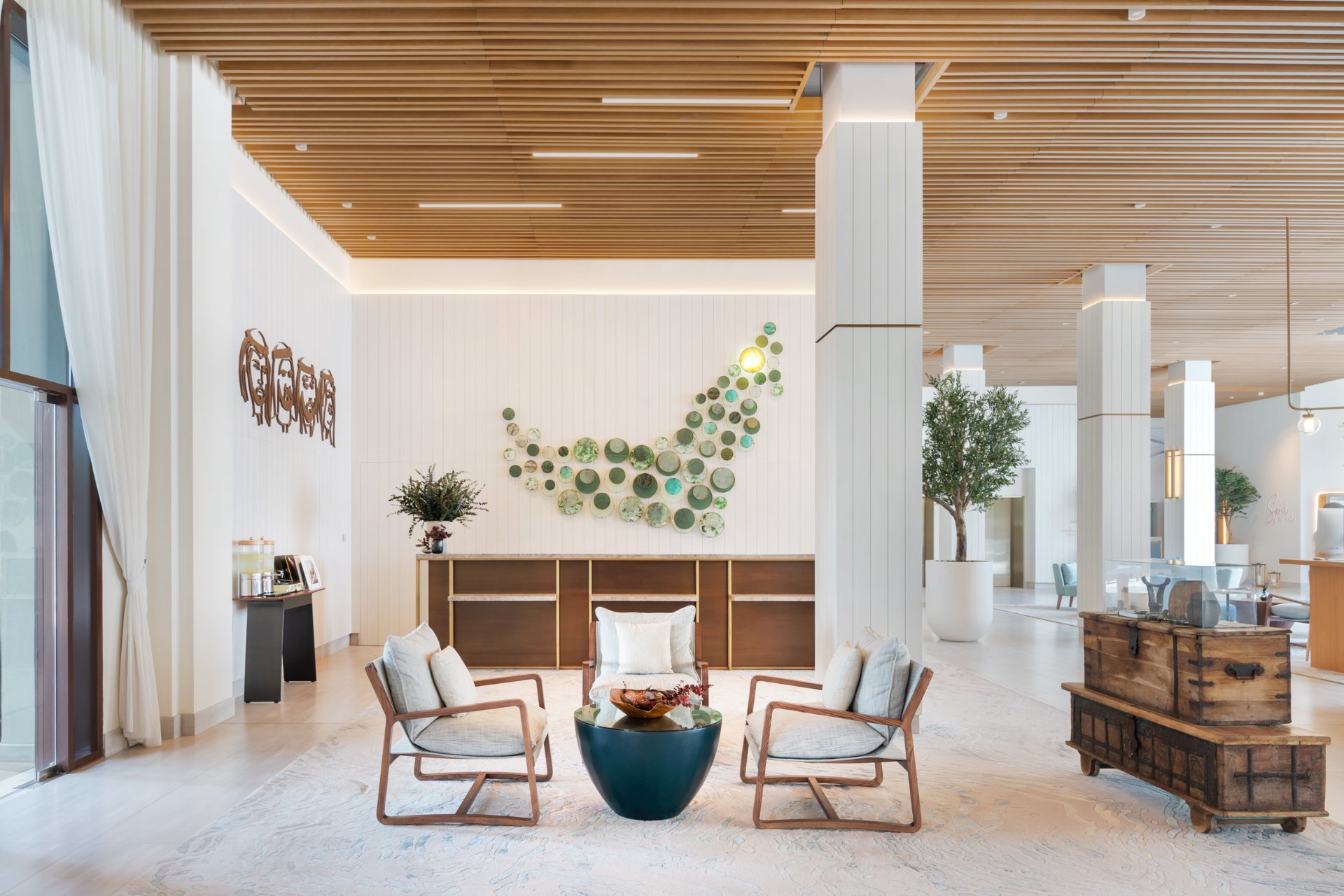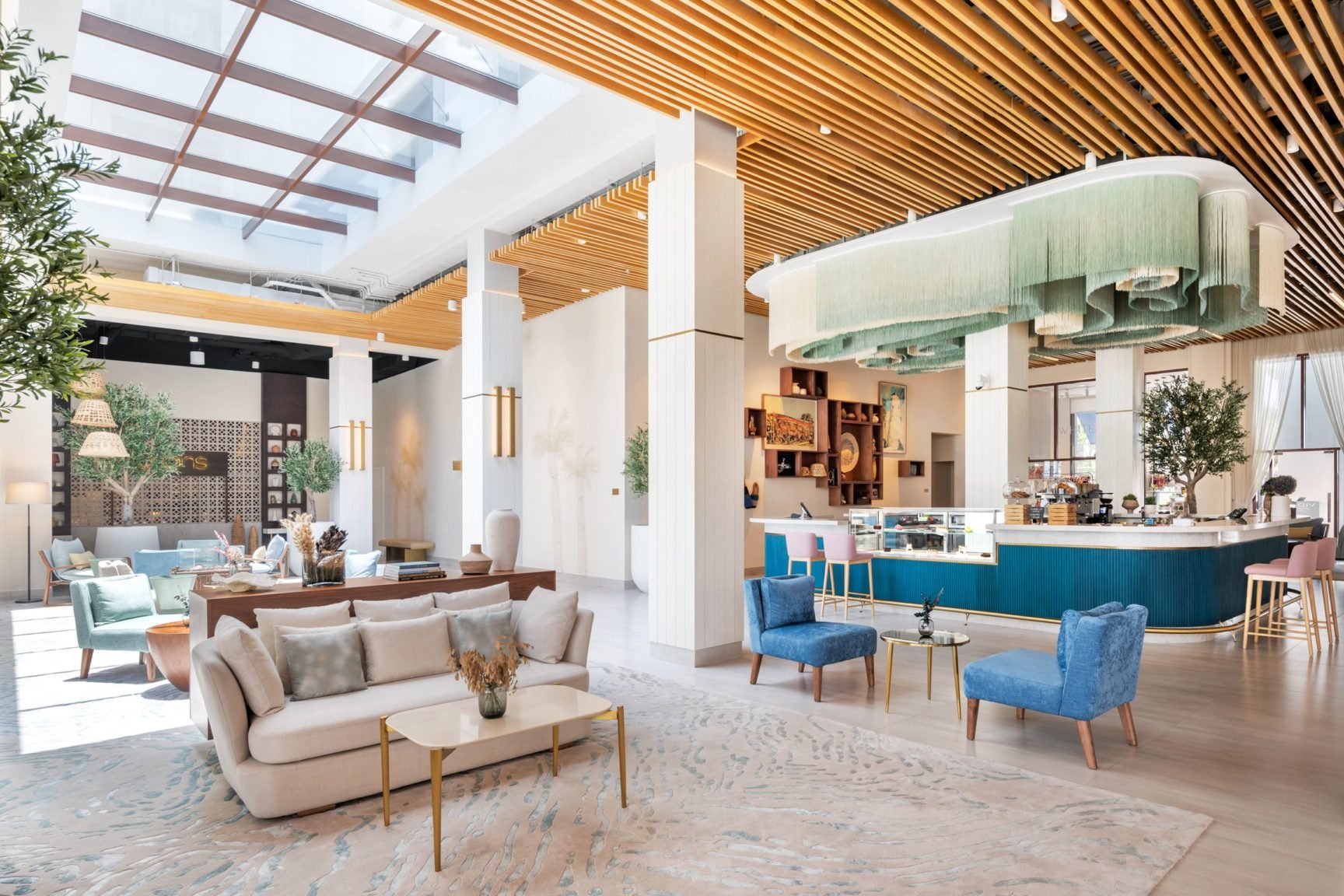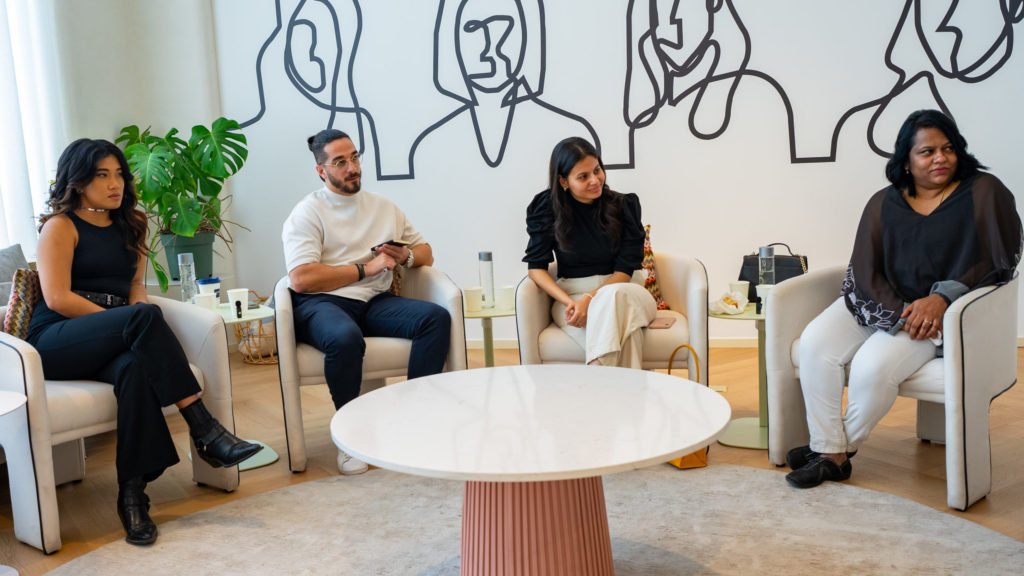
Husain Roomi is co-founder and one half of H2R, a multi award winning, London and Dubai based design firm. The UK born designer hails from a Middle Eastern background, which lends itself to a rich and diverse global design portfolio. As a firm, H2R Design maintains a commercial wealth of projects with a focus on hospitality, F&B and retail sectors.
“It goes without saying that the last two years have impacted the many facets of our everyday lives. Our longing for the outdoors is even greater – most of us have learned to work from anywhere, and most importantly, our relationship with space and the aesthetics of space has completely changed.
Between applying new health precautions, to creating new digital experiences to meet growing customer expectations, the hospitality industry has had to adapt to survive, with innovative design playing a key role.
Here are five hospitality design trends that, in my opinion, will help future proof the design industry for the coming years.
Sustainably designed materials
There’s been a big push for sustainability across multiple industries, and hospitality design is most definitely no exception. From repurposed furniture to locally handcrafted (and certified material) items through to plant-based alternatives, there are plenty of ways to incorporate sustainability into design or renovation.
No longer just a buzzword and a nice-to-have, sustainability is the future of design, and this year we will see existing hotels focusing and promoting a healthy environment for their guests by conserving energy, minimizing waste, and reducing their overall carbon footprint, whilst also seeing new developments integrating sustainable practices in their build as well. This was top of mind for us when designing Vida Beach Resort in Umm Al Quwain as we strived to use sustainable materials where possible, including reconstituted stone, non-toxic paint, and FSC-certified timber.
Renovating and repurposing existing spaces
2022 is the year of repurposing and renovation. This process of restoring old spaces is essential to offsetting environmental issues and changing the way we develop hospitality venues for the modern day.
Outdoor renovations in particular will become a priority, and aesthetically pleasing shade structures that provide comforting protection from the sun, will make spaces feel more connected and beautiful, particularly in this region.
Most of our predicted hospitality design trends for 2022 focus on health, wellness, comfort, and functionality. These trends will make hospitality venues stronger and more resilient, giving guests a complete, safe, and enjoyable experience, one that they will remember. No matter what trends you incorporate or design choices you make, everything starts from the bottom up.
“2022 is the year of repurposing and renovation. This process of restoring old spaces is essential to offsetting environmental issues and changing the way we develop hospitality venues for the modern day.”
– Husain Roomi, Co-Founder of H2R Design
The hotel lobby of the future
In response to the rise of Airbnb and vacation rentals, another trend we expect to play out is the renovation of hotel lobbies and communal spaces. Moving forward, we expect that they will offer a more welcoming and relaxing atmosphere, and increase coworking spaces to accommodate the ever-growing rise of remote working. International travellers have also started to take advantage of their recent workplace flexibility by extending holidays that blend work, exploration, and leisure.
With the use of comfortable chairs and desks, more charging points, and free, high-speed Wi-Fi, hotels will elevate their design to connect physical spaces to both the local community and travellers.
It’s all about the tech
It’s without a doubt that consumers look forward to the latest tech advancements, as nowadays, people want life to feel as effortless as possible. Hotels will be applying more tech functions, such as the ability to order room service from their phones, closing curtains with the press of a button, keyless room entry with smartphone apps, and even incorporating iPads for people to check in 24 hours/7 days a week instead of having to wait in line at a check in desk.
In a world where remote working and learning has become the new norm, high-tech hotel rooms will also attract more guests and streamline typical activities, maximising a property’s booking potential. This is just the start for technology in hotel design trends and we expect to see even more tech-fuelled innovations from this year on.

Bring the outside in and breathe
As people become more environmentally conscious, greenery in decor renovations or design plans will also likely grow in popularity.
Hospitality design will start to incorporate plenty of natural and biophilic elements to improve health, and an overall feeling of well-being. There has been growing interest in the significant link between people and nature, simply because it positively affects our health and productivity. We have found that more and more designers are injecting life into hospitality spaces by using daylighting techniques, natural ventilation, indoor gardens, and natural design elements that connect us with nature.







